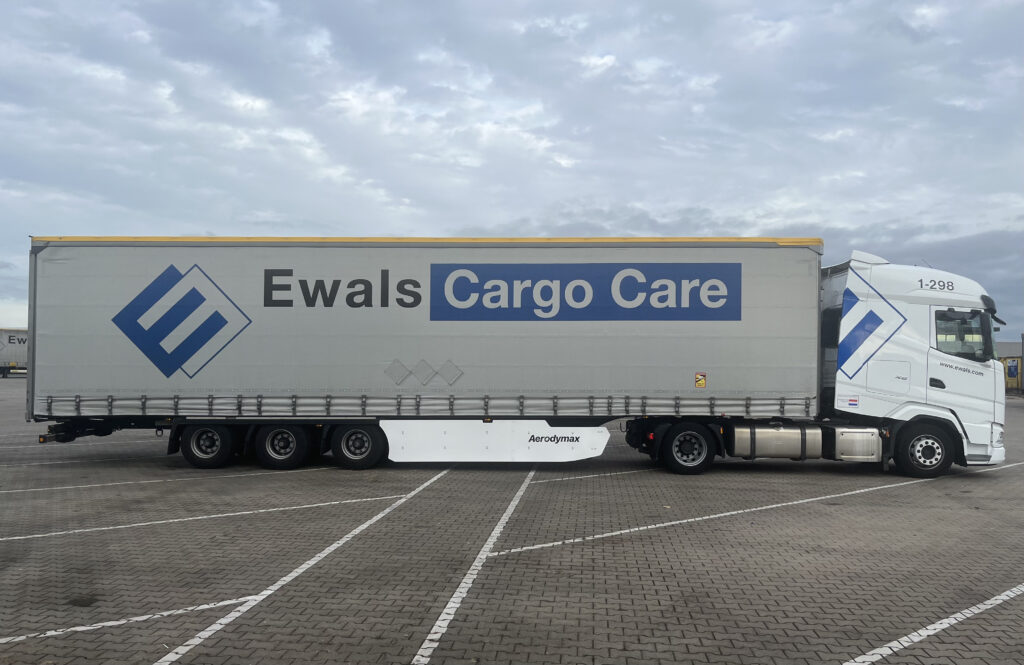The Benefits to Trailer Side Skirts
25th November 2024

As the European Union tightens its regulations on trailer aerodynamics, Ewals Cargo Care are taking proactive steps to meet and exceed these standards. The upcoming Vecto-rules, mandating a 10% reduction in CO₂ emissions for new trailers by 2030, represent a forward-looking approach to addressing climate change. Although trailers themselves do not directly emit CO₂, their design plays a critical role in the fuel efficiency of the trucks towing them. Improving the aerodynamic performance of trailers can lead to significant reductions in fuel consumption, which in turn lowers overall CO₂ emissions.
Consider a conventional box-shaped trailer, which creates significant air resistance when hauled by a truck. Adding features like side skirts, rear trailer tails, and smooth underbody panels can streamline airflow and reduce drag. For instance, a study by the North American Council for Freight Efficiency (NACFE) showed that adding side skirts to trailers can improve fuel efficiency by up to 7%, while trailer tails can contribute another 4-5%. These modifications collectively reduce the energy the truck needs to maintain speed, leading to lower fuel consumption and a corresponding decrease in emissions.
Ewals’ approach to innovation
Ewals Cargo Care are starting with a pilot program to test a single trailer equipped with Aerodymax’s side skirts. This innovation can reduce fuel consumption and emissions by up to 5%. This pilot will allow Ewals to evaluate their performance in various transport modes, including ferry and rail. Lashing trailers on ferry ships and positioning trailers with side skirts into train wagons will require monitoring for potential damage or wear and tear. However, they hope for a positive result from the pilot. By embracing innovative solutions like aerodynamic skirts, Ewals are not only complying with regulations but also innovating in sustainable way.

